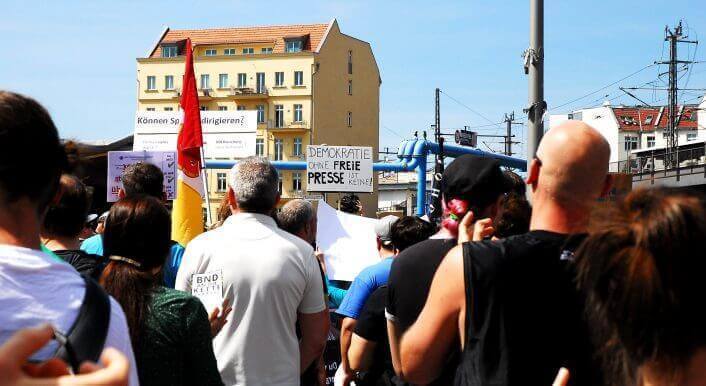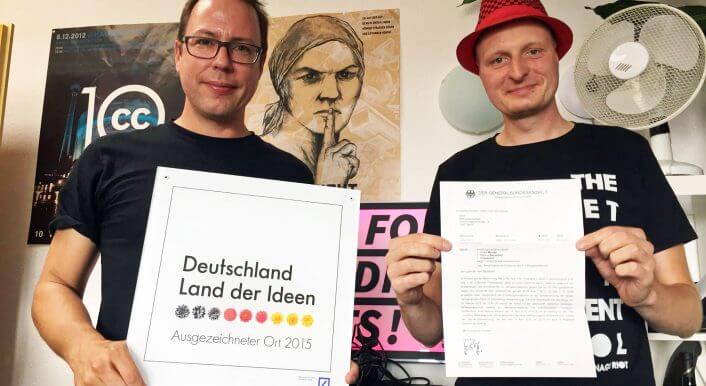The #GenerationE about itself
Since the beginning ot the year we have been reporting about the GenerationE – young Southern Europeans who moved to Northern Europe. More than 2400 people filled in our questionnaire which we published in collaboration with several Southern European media organizations. Every few days we introduce you to one of these people on our Tumblr. Now we took a look at the blogs these expats write. They provide an interesting picture of the GenerationE – between pride and prejudice.

“I don’t see myself as an immigrant, the term describing those who moved abroad out of actual necessity. I prefer the word „expat“, the Generation Expat – that’s it. Back in my hometown I had a stable job, and so had my boyfriend: moving abroad was a free choice, not a desperate one.“ That’s Valentina speaking. She’s Italian but has lived abroad for almost two years now. Together with other female Italian bloggers spreaded across the world, Valentina contributes to the collaborative blog called Amiche di Fuso, which roughly translates to something like „Time zone pals“. Other #GenerationE women get together through the facebook page Donne che emigrano all’estero (women who emigrated abroad), where they share stories about the perks and disadvantages of the expat life.
Valentina states: not everyone needs to move abroad. It’s a free choice. This makes it harder for friends and family to understand and support them. And even if they do, certain aspects of the „expat“ life are still beyond their understanding. „You want to get close to those people who are experiencing the same problems as you are and get how frustrating or, on the other hand, exciting some little expat things may be.“ Amiche di Fuso grew out of a long-distance friendship, which in turn grew out of blogs and facebook pages. Some people say new technologies prevent people from finding true friends. In this case it was the other way around.
Blogging as a therapy to loneliness
“When I came here I managed to build a career quite easily. But I was feeling lonely and estranged. What I really lacked was a satistfying life outside work.“ Francesca’s nickname is Chechi and Vivere a Madrid is her imaginary friend. „I started blogging because I needed to give vent to my needs and wants. After a while, more and more people got in touch with me and my social life improved significantly.“ Since then, Chechi has written a book and participated in several radio and TV shows. Now she finally feels an integrated citizen. „The blog is a cornerstone of my expat experience.“
And the readers?
Blogs can have a positive impact on the everyday life of those who write them. What does this mean to the readers? They are part of the process too. What about their needs? „Interviews and personal stories are the most read content“, Aldo reveals. Over the years, his blog Italiansinfuga has become his job and is probably the most popular expat blog among Italians. „Practical advices and information are very much appreciated, but that’s not the kind of posts you would share with your friends. They have no emotional appeal, which probably Italians need the most when facing such a big decision.“ Most of his readers still live in Italy, summoning up all their courage to take the ‘big leap’. „Moving abroad is scary. People need to know how it’s going to feel. They need to know that many people have been there before, and they managed to overcome the challenges they inevitably had to face.“
But a little hope is not the only thing the GenerationE needs to start a new life abroad. All these successful expat stories sometimes can be deceiving.
“My goal is to expose the truth. I don’t want others to make the same mistakes I did.“ Roberta moved from Sicily to a small town in Germany two years ago and has quickly realised that information is crucial in this kind of process. „Most Italians are totally unprepared. They have no idea they’re going to need German qualifications or at least some references to find a decent job here. They think Germany is heaven on earth. And some bloggers contribute to misinformation by fostering this idea.“ In order to take a rational decision, expats-to-be need unadulterated sincerity. „I try to warn my readers, but sometimes they just don’t want to listen. They leave anyway and after a couple of months they end up writing me e-mails, telling me that I was right from the very beginning.“
“Strange Animals“
The GenerationE blog scene is quite dynamic and it showcases a diverse landscape. While emigrating still feels like a burden in many cases, for some people it’s more of a blessing than a curse. They are keen to know different cultures and appear to be active and organized — also digitally speaking. Plus, they are proud of their life choices.
Ornitorinko gives voice to those who „are following an interesting path and want to share their experience with others“. It mostly collects stories of young professionals who turned their lives upside-down and moved abroad, even though back in Italy they had a stable job or a solid future ahead. They call themselves „strange animals“. Browsing through the pages we find that lots of them have their own blog too. Sometimes it’s just a hobby, sometimes it’s their actual job. Some of them are, in fact, „digital nomads“ i.e. people who work as web freelancers and therefore don’t need to be in a particular location to make a living. They are not just ‘expats’ but first and foremost ‘travellers’, whose motivation does not only rely on better prospects but also on the pleasure of discovery and thinking outside the box.
Every GeenrationE story is different from the another. We write about the expats in our Tumblr. We also want you to share your experience with us through our questionnaire.



